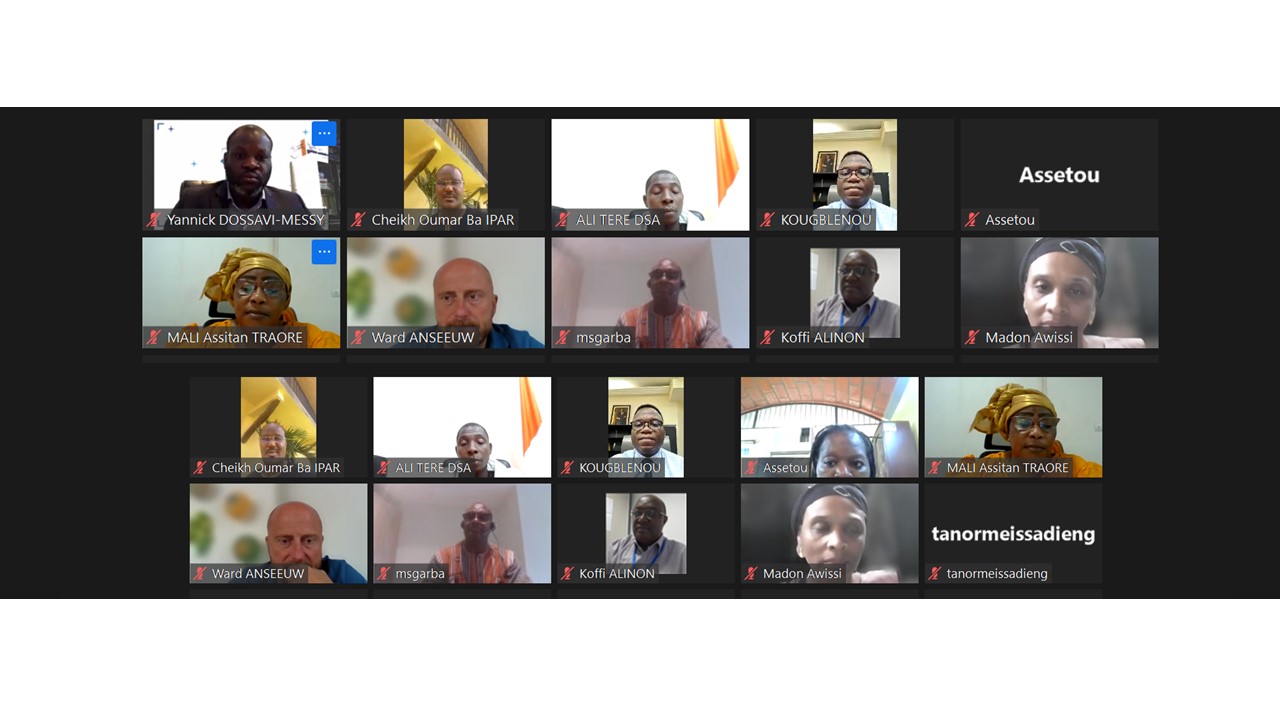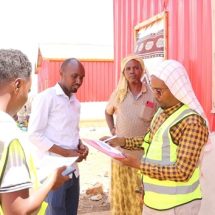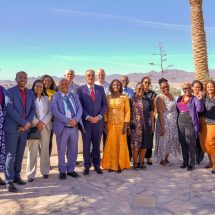The sustained dialogue between the Global Land Indicators Initiative (GLII) and the West African Economic and Monetary Union (WAEMU) region yielded the first sub-regional workshop on land governance monitoring. Spearheaded by the Rural Land Observatory of WAEMU, with facilitation support by GLII, the workshop titled “Regional Methodology Workshop on the Monitoring of SDG Indicators Relating to Rural Land Tenure” took place from July 25 to 27 2023.
This pioneering event brought together more than fifty experts in the nexus of land and related data. Among the participants were National Statistics Offices (NSOs) and statistics departments of Agricultural Ministries of WAEMU member States; Benin, Burkina Faso, Cote d’Ivoire, Guinea-Bissau, Mali, Niger, Senegal, and Togo. The workshop also welcomed key stakeholders such as, the Economic Community of West African States (ECOWAS), executives of the WAEMU Commission, the national focal points of the ORFAO, members of the regional working group and the Global Land Observatory. Notably, GLII coordinated the involvement of custodian agencies responsible for Sustainable Development Goals (SDGs) land indicators, such as the United Nations Human Settlements Programme (UN-Habitat), the World Bank, and the Food and Agriculture Organization of the United Nations (FAO).
Setting the stage for the workshop, the Commissioner in charge of the Department of Agriculture, Water Resources, and Environment (DAREN) emphasized the pivotal role of rural land tenure in regional integration, underscoring the significance of secure land rights as the cornerstone for sustainable development.
Following the opening address, member States, represented by their NSOs, shared their experiences in monitoring land-related indicators, with a particular focus on SDG indicators 1.4.2 and 5.a.1. While all WAEMU member States confirmed having reported data on the two indicators to the Global SDG Indicators Database through the United Nations Statistics Division, they expressed a need for further technical capacity strengthening to adapt the global joint methodology to their unique contexts, ensuring comprehensive and sustainable reporting. Moreover, the member States extended invitations for collaborative support in the development and review of their rural and national land policies.
Synergistically, custodian agencies reaffirmed their commitment to supporting the integration of crucial questions on land tenure security from the global methodology into the forthcoming Harmonized Survey on Household Living Conditions (EHCVM). The World Bank, in particular, highlighted ongoing enhancements to the EHCVM questionnaire design aimed at elevating land tenure security monitoring. Moreover, efforts would be made to triangulate survey and administrative data for comprehensive reporting.
In a captivating case study session, Senegal’s NSO shared a best practice experience from its national capacity-building initiative, conducted in collaboration with UN-Habitat under the project “Disaggregated Land Indicators for Policies and Actions that Leave No One Behind in Africa.” Launched in 2021, the project, aimed to convene and strengthen the capacity of all relevant national agencies to collect and analyze data for reporting on land tenure security in the framework of SDG indicators 1.4.2 and 5.a.1, providing an essential evidence base for policy information on good land governance. Through a series of capacity-building workshops and an assessment of the legal and institutional framework of land governance, land data production and interoperability, the collaboration enhanced the capacity of the national agencies in Senegal to generate, analyze, report and share data on land governance, coordinated by the NSO.
In a joint presentation, custodian agencies provided insights into the process and expected outcomes of monitoring land governance and tenure security through implementation of the global joint module for SDG indicators 1.4.2 and 5.a.1. Additionally, the Food and Agriculture Organization (FAO) presented the global methodology for SDG indicator 5.a.2, which assesses the effectiveness of legal frameworks, including customary laws, in safeguarding women’s land rights. This completed the trio of core indicators related to land tenure security in the SDGs framework.
Overall, the workshop showcased the deliberate and coordinated effort of key stakeholders at the national and regional levels to monitor land governance and tenure security, ensuring a robust evidence base for informed policymaking. While some member States such as Guinee Bissau expressed interest in further technical assistance from the custodians regarding collection and analysis of land related data, all stakeholders agreed on the need for continued systematic integration of mechanisms for land related data collection in national surveys.
GLII commends the efforts of the eight WAEMU member States for their collaboration with custodian agencies in which promoting reporting on SDG indicators 1.4.2 and 5.a.1 in the first round of EHCVM surveys. Their commitment to integrating additional questions from the global methodology in the upcoming round for updated and comprehensive data on land tenure security is laudable.
Furthermore, GLII applauds the WAEMU Commission’s Rural Land Observatory for its proactive engagement with key national and international stakeholders involved in monitoring of land governance. The initiative exemplifies regional and continental best practices in mobilizing efforts for land governance monitoring.
In line with the workshop’s recommendations, GLII reiterates its commitment to facilitating further collaboration between custodians, WAEMU, and the NSOs for continuous discourse and action towards enhanced coordination and capacity building in monitoring land governance, developing baseline reports, and promoting the uptake of resultant data for informed policy decisions.
WAEMU Focal Point: Ibrahima Ka, ika@uemoa.int
GLTN/GLII Focal Point: Regina Orvananos, unhabitat-gltn@un.org
Download:
Regional methodology workshop on the monitoring of SDG indicators relating to rural land tenure
Atelier régional de méthodologie sur le suivi des indicateurs des ODD relatifs au foncier rural












